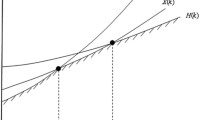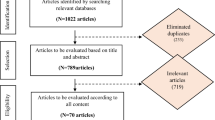Abstract
In recent years there have been significant changes to the logistics environment in which ports operate, which is now focused on supply chain management, global networking and customer orientation practices. Furthermore, ports have adopted different strategies concerning their level and form of integration into supply chains, service quality and provision of value-added activities. Traditional port performance indicators focus on specific ‘efficiency’ measures, whereas contemporary indicators are expected to be inclusive of all aspects of operations and to be consistent with the strategies of the organisation. In this regard, this article analyses the changes currently taking place in the port industry and develops a port performance framework that reflects these changes. The framework was designed based on exploratory study, and the validity and reliability of the framework were confirmed using Confirmatory Factor Analysis. It is concluded that port performance is multifaceted, not limited to internal processes and also related to external service aspects such as service quality and logistical elements such as value-added services. In addition, it is shown that port operating companies and port authorities should strive to maintain a balanced focus on both effectiveness and efficiency aspects of performance management and improvement, aiming to meet the requirements of customers and other supply chain actors.






Similar content being viewed by others
References
Anderson, J.C., Gerbing, D.W. and Hunter, J.E. (1987) On the assessment of unidimensional measurement: Internal and external consistency, and overall consistency criteria. Journal of Marketing Research 24: 432–437.
Banomyong, R. (2005) The impact of port and trade security initiatives on maritime supply-chain management. Maritime Policy and Management 32: 3–13.
Beamon, B.M. (1999) Measuring supply chain performance. International Journal of Operations and Production Management 19: 275–292.
Beresford, A.K.C., Gardner, B.M., Pettit, S.J., Naniopoulos, A. and Wooldridge, C.F. (2004) The UNCTAD and WORKPORT models of port development: Evolution or revolution? Maritime Policy & Management 31: 93–107.
Bichou, K. (2004) The ISPS code and the cost of port compliance: An initial logistics and supply chain framework for port security assessment and management. Maritime Economics and Logistics 6: 322–348.
Bichou, K. (2007) Review of port performance approaches and a supply chain framework to port performance benchmarking. In: M.R. Brooks and K. Cullinane (eds.) Devolution, Port Governance and Port Performance. Amsterdam: Elsevier.
Brooks, M.R. (2007) Issues in measuring port devolution program performance: A managerial perspective. In: M.R. Brooks and K. Cullinane (eds.) Devolution, Port Governance and Port Performance. Amsterdam: Elsevier JAI.
Byrne, B.M. (2001) Structural Equation Modelling with AMOS Basic Concepts, Applications, and Programming. Mahwah, NJ: Lawrence Erlbaum Associates.
Carbone, V. and De Martino, M. (2003) The changing role of ports in supply-chain management: An empirical analysis. Maritime Policy & Management 30: 305–320.
Cho, J. and Kang, J. (2001) Benefits of challenges of global sourcing: Perceptions of US apparel retail firms. International Marketing Review 18: 542–560.
Clark, X., Dollar, D. and Micco, A. (2004) Port efficiency, maritime transport costs, and bilateral trade. Journal of Development Economics 75: 417–450.
Cochrane, R.A. (2007) The Effects of Market Differences on the Throughput of Large Container Terminals with Similar Levels of Efficiency, Proceeding of the IAME 2007 Conference, Athens, Greece. IAME.
Cullinane, K., Song, D.-W., Ji, P. and Wang, T.-F. (2004) An application of DEA windows analysis to container port production efficiency. Review of Network Economics 3: 184–206.
Devellis, R.F. (1991) Scale Development: Theory and Application. Newbury Park, CA: Sage Publications.
Fleming, D.K. and Baird, A.J. (1999) Some reflections on port competition in the United States and Western Europe. Maritime Policy & Management 26: 383–394.
Fornell, C. and Larker, D.F. (1981) Evaluating structural equation models with unobservable variables and measurement error. Journal of Marketing Research 18: 39–50.
Garver, M.S. and Mentzer, J.T. (1999) Logistics research methods: Employing structural equation modelling to test for construct validity. Journal of Business Logistics 20: 33–57.
Gerbing, D.W. and Anderson, J.C. (1988) An updated paradigm for scale development incorporating unidimensionality and its assessment. Journal of Marketing Research 25: 186–192.
Hair, J.F., Anderson, R.E., Tatham, R.L. and Black, W.C. (1998) Multivariate Data Analysis. Upper Saddle River, NJ: Prentice Hall.
Heaver, T. (2001) The evolving roles of shipping lines in international logistics. International Journal of Maritime Economics 3: 210–230.
Kline, R.B. (2005) Principles and Practices of Structural Equation Modelling. New York: The Guilford Press.
Lai, K.H., Ngai, E.W. and Cheng, T.C. (2002) Measures for evaluating supply chain performance in transport logistics. Transportation Research Part E 38: 439–456.
Lambert, D.M. and Cooper, M.C. (2000) Issues in supply chain management – Don’t automate, obliterate. Industrial Marketing Management 29: 65–83.
Lee, P.T.-W. and Chang, Y.-T. (2007) Impact of Port Security on LNG and Container Cargo Movements, Proceedings of the IAME 2007 Conference, Greece Athens. IAME.
Marlow, P.B. and Paixao-Casaca, A.C. (2003) Measuring lean ports performance. International Journal of Transport Management 1: 189–202.
Notteboom, T.E. (2004) Container shipping and ports: An overview. Review of Network Economics 3: 86–106.
Notteboom, T.E. and Winkelmans, W. (2001) Structural changes in logistics: How will port authorities face the challenge? Maritime Policy and Management 28: 71–89.
Panayides, P.M. (2006) Maritime logistics and global supply chains: Towards a research agenda. Maritime Economics & Logistics 8: 3–18.
Rabinovich, E., Windle, R., Dresner, M. and Corsi, T. (1999) Outsourcing of integrated logistics functions: An examination of industry practices. International Journal of Physical Distribution & Logistics Management 29: 353–373.
Robinson, R. (2002) Ports as elements in value-driven chain systems: The new paradigm. Maritime Policy & Management 29: 241–255.
Sachish, A. (1996) Productivity functions as a managerial tool in Israeli ports. Maritime Economics & Logistics 23: 341–369.
Slack, B. (1985) Containerization, inter-port competition and port selection. Maritime Policy & Management 12: 293–303.
Slack, B., Comtois, C. and Sletmo, G. (1996) Shipping lines as agents of change in the port industry. Maritime Policy and Management 23: 289–300.
Slack, B., Comtois, C., Mccalla, R.J. and Guy, E. (2001) Global Reach: The Evolving Pattern of Container Shipping Networks, Proceedings of World Conference on Transport Research. Seoul, South Korea. Oxford: Pergamon Press.
Tabachnick, B.G. and Fidell, L.S. (2001) Using Multivariate Statistics. Boston, MA: Allyn and Bacon.
Talley, W.K. (1988) Optimum throughput and performance evaluation of marine terminals. Maritime Policy & Management 15: 327–331.
Talley, W.K. (1994) Performance indicators and port performance evaluation. Logistics and Transportation Review 30: 339–352.
Tongzon, J. (2001) Efficiency measurement of selected Australian and other international ports using data envelopment analysis. Transportation Research Part A: Policy and Practice 35: 107–122.
Tongzon, J. (2002) Port Choice Determinants in a Competitive Environment. Panama: IAME.
Tongzon, J.L. (1995) Determinants of port performance and efficiency. Transportation Research Part A: Policy and Practice 29: 245–252.
Tongzon, J. and Ganesalingam, S. (1994) An evaluation of ASEAN port performance and efficiency. Asian Economic Journal 8: 317–330.
UNCTAD. (2004) Efficient Transport and Trade Facilitation to Improve Participation by Developing Countries in International Trade (TD/B.COM.3/67). Geneva: UNCTAD.
Wang, T.-F. and Cullinane, K. (2006) The efficiency of European container terminals and implications for supply chain management. Maritime Economics & Logistics 8: 82–99.
Woo, S.-H., Pettit, S.J. and Beresford, A.K.C. (2008) A New Port Performance Measurement Framework in a Changing Logistics Environment, Proceedings of the LRN 2008 Annual Conference; 10–12 September. Liverpool, UK: CILT, pp. 141–146.
Author information
Authors and Affiliations
Rights and permissions
About this article
Cite this article
Woo, SH., Pettit, S. & Beresford, A. Port evolution and performance in changing logistics environments. Marit Econ Logist 13, 250–277 (2011). https://doi.org/10.1057/mel.2011.12
Published:
Issue Date:
DOI: https://doi.org/10.1057/mel.2011.12




